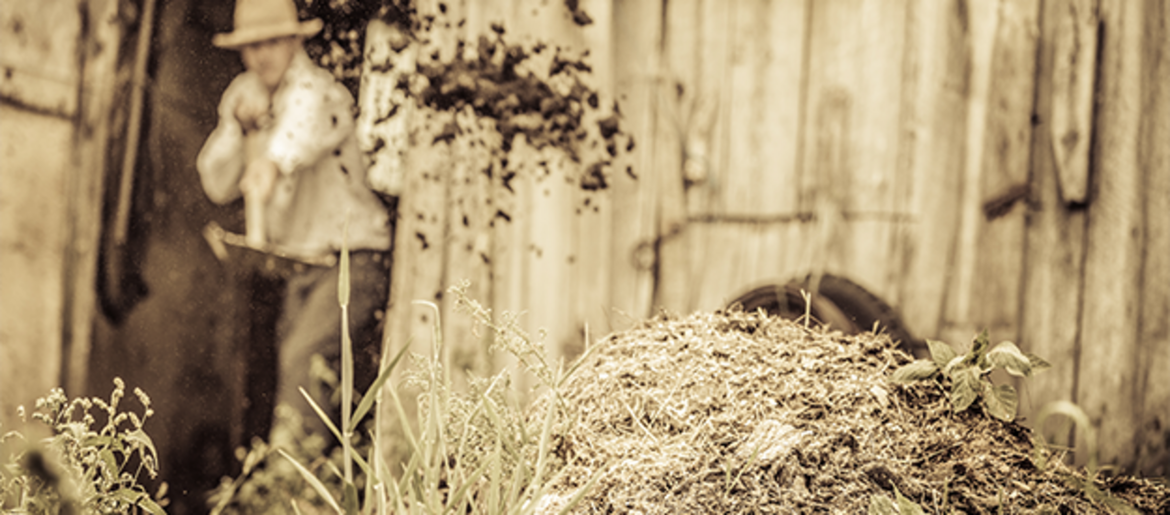Manure Management Done Right
Most horse owners ideally want the box in which the horse is kept to be cleaned on a daily basis. Damp straw should be removed and disposed of. That sounds logical and good at first, as a horse produces up to 23 kilograms of faeces and twelve litres of urine per day.
In the long term, however, this approach can lead to problems, as the horse's respiratory organs are heavily stressed. Different manure removal intervals have a major influence on the formation of dust and ammonia, which in turn can trigger many respiratory diseases. Let's take a closer look at these two triggers:
Dust
Dust can have a dangerous effect on the health of our horses' bronchial tubes and, like humans, cause allergic reactions. Dust from poor quality straw and hay can even be toxic to our horses because it often contains mould spores which, if inhaled, cause long-term problems.
Ammonia
This colourless, pungent-smelling gas is poisonous. It occurs when nitrogenous substances in urine and faeces decompose. Because ammonia is lighter than air, the gas does not stay on the ground but rises to the top. It can irritate the upper respiratory tract of our horses and increase the susceptibility to infection.
Ammonia and dust in combination can even damage the alveoli. The mucous membranes swell and it is difficult for the animals to breathe. In addition, ammonia can cause mildew and thrush.
The right technique
The right manure technique is necessary so that there is no increased formation of dust or ammonia. Research has shown that daily mucking out is not optimal. As a result, microorganisms that split the urea and bind the nitrogen cannot multiply in sufficient numbers, which increases the ammonia concentration. Bedding, which always has plenty of sprinkling, is better in terms of ammonia and dust pollution than a complete daily cleaning. The microorganisms can multiply and work undisturbed in these mattresses. This results in fewer or no toxic gases and the horse still stands on dry ground.
Correct mucking out
So that the pollution is as low as possible, you will find the optimal manure method here.
- First, take your horse out of the stable before mucking out. How to protect it from dust and ammonia odours.
- Then lay the base of the bedding. This should be a well-absorbent material. Straw pellets or chopped straw are wonderfully suitable for this. Straw or alternative bedding material is placed on top.
- Horse droppings or particularly wet areas are now removed daily above the base layer. The mattress itself should not be removed in the process.
- It is important here that it is topped up regularly and very generously. Straw can be strewn every day, but twice as much dust is generated as with straw pellets. You can also use other bedding materials, whereby the manufacturer's instructions must be observed.
- If the stable is cleaned, it should always be made wet before sweeping. This greatly reduces dust formation.
A manure mattress lasts for different lengths of time, depending on the external weather conditions. If it is hot in summer, it has to be replaced more often so that too many flies and insects do not get stuck there.
Other factors
Even if mucking out has a major effect on the housing climate, it is not the only factor influencing it. Other important factors include:
- The quality of the feed
- The humidity (ideal is 60-65 percent)
- The temperature in the stable (it should largely correspond to the outside temperature)
- The fresh air supply
- The air circulation
Latest reviews
-
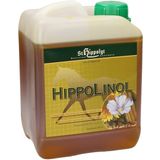 5.0 (13)
5.0 (13)St.Hippolyt HippoLinol, 2,50 l
-12%- Composition of selected vegetable oils
- Cold-pressed from controlled cultivation
- From our own production
€ 19,80 € 22,49 (€ 7,92 / l)Delivery by April 18
-
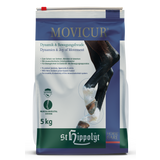 4.8 (11)
4.8 (11)St.Hippolyt MoviCur Connective Tissue Treatment, 5 kg
-11%- Supports tendons, ligaments & joints
- Contains New Zealand green-lipped mussels
- Rich in specific active herbs
€ 58,50 € 65,49 (€ 11,70 / kg)Delivery by April 18
-
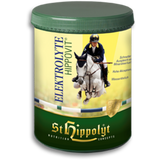 € 20,87 € 23,49 (€ 20,87 / kg)
€ 20,87 € 23,49 (€ 20,87 / kg)Delivery by April 18
-
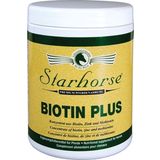 4.8 (4)
4.8 (4)Starhorse Biotin Plus, 550 g
-10%- Biotin, Zinc & Methionine
- Slightly sweet taste
- With vanilla flavour
€ 26,95 € 29,99 (€ 49,00 / kg)Delivery by April 18
